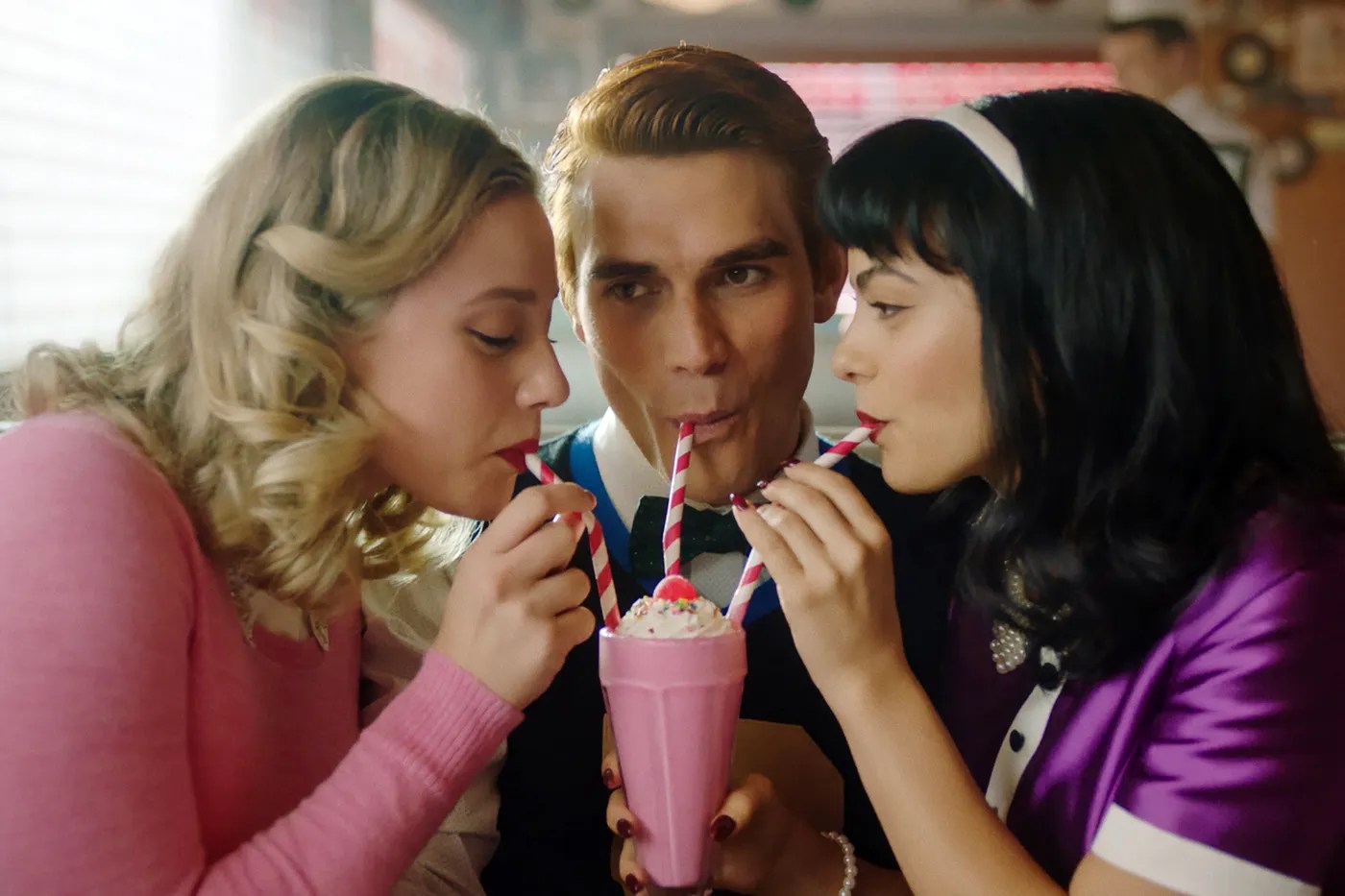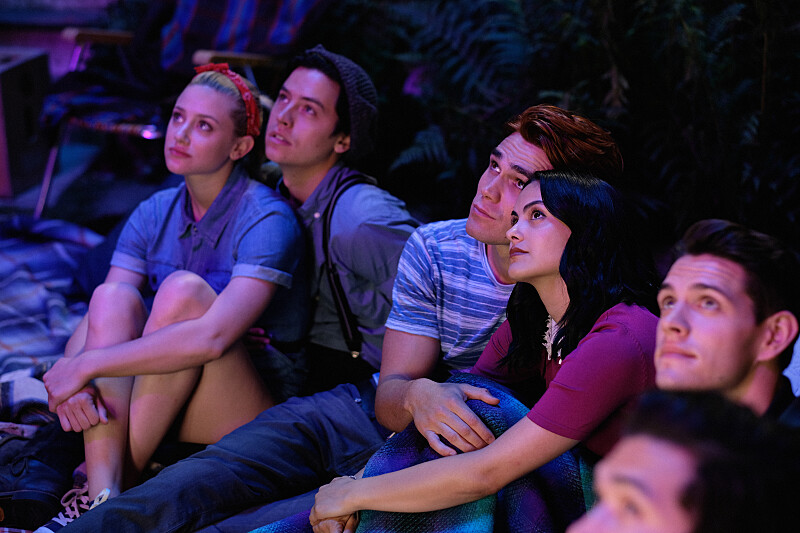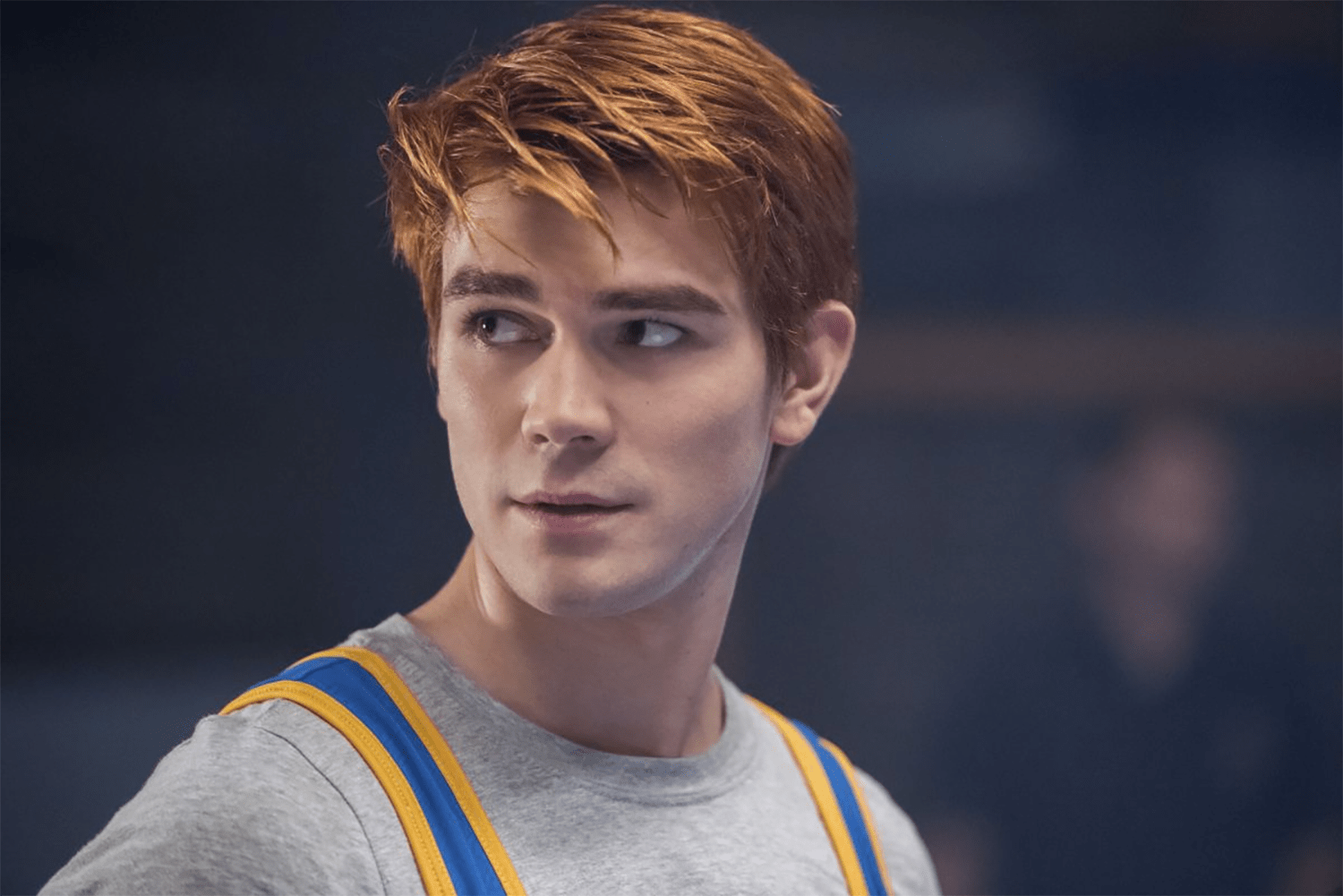You didn’t watch Riverdale. Not really. Sure, you might have seen season one, following along to find out who really killed Jason Blossom, but so did everyone. Only the bravest and boldest continued. Those of us that stayed endured the great Jingle Jangle epidemic of season two. We were there when tickle fetish videos swept Riverdale. When Archie got attacked by a bear and nursed back to health by Riley Keough. When Chad Michael Murray’s Edgar Evernever (yes, really) started a cult that was actually an organ-harvesting operation he later tried to escape from by flying a rocket into space. We were there for Betty’s fake cam boy brother. And when that same cam boy brother was later unmasked as the Gargoyle King. We were there when you weren’t, and you don’t get to say shit about poor, sweet Riverdale, which aired its finale last night and drew its final breath.
The end of Riverdale then, understandably, has me feeling both delighted and heartbroken for its cast. The Stockholm syndrome on that set must have been intense; it is no secret that the cast disliked the show. “I feel like I’m in jail a lot of the time,” KJ Apa told Demi Moore in Interview magazine in 2021. A year prior, stuck in rural Canada by COVID travel restrictions, Lili Reinhart told Nylon that the show made her “feel like a prisoner.” To shoot ten months a year for seven years straight would drive any actor insane; what is doubly galling about Riverdale’s case is that it was all unnecessary.
Riverdale was the last gasp of an era of television that no longer exists. In a recent exit interview with the cast for Vulture, Reinhart said, “I could speak for probably all of us: We will never again do something that’s 100-plus episodes.” It’s a hoop young actors no longer need to jump through. Cutting your teeth in show business used to require doing hard (and long) time but, since Riverdale aired, miniseries like Euphoria have come along and made stars of Hunter Schafer, Sydney Sweeney and Jacob Elordi practically overnight. Heartstopper’s leads joined the fashion cognoscenti weeks after its first eight-episode season dropped. Paul Mescal turned a BBC miniseries into an Oscar nomination in less than three years. Riverdale was a fossil from another age before it had even finished airing its first season.

But as the last teen soap juggernaut, Riverdale had room to go balls to the wall. It was in competition with nothing but itself, endlessly daring itself to push the envelope further no matter how alienating it was to its diminishing but rapt audience. For that I will always love it. It’s why I kept watching. Every tweet ridiculing it, every time I saw that stupid ‘epic highs and lows of high school football’ quote trotted out, it would only kindle my love. Riverdale didn’t care that you hated it and neither did I.
Where its predecessors, shows like Gossip Girl, Pretty Little Liars, The OC and Glee, eventually got tangled up in their own convoluted lore, Riverdale confidently embraced its contradictions early on. The criticism of Riverdale — namely that it fell off after season one — never held water because it had no intention of ever remaining one thing. Other teen series often struggled to build on their first season’s arc – 13 Reasons Why had no idea where to go post-Hannah Baker; Glee struggled to justify why Rachel Berry and co kept skulking around Ohio; even Euphoria seemed to have outgrown high school by its second season – and Riverdale endured by splintering off into every conceivable direction all at once.
Riverdale bastardised pop culture more voraciously than any talk show or satire of the last decade. A character named Elio popped up mere months after Call Me by Your Name came out. A character once fled Riverdale for San Junipero. The local prison was called Shankshaw. There was a season-long arc where Jughead attended a school called Stonewall Prep (!) and re-enacted The Secret History alongside a girl named Donna Sweett and a guy named Bret Weston Wallis. When the show started time travelling (?) it had one character go back to the 1960s in order to prevent Martin Luther King Jr.’s assassination. Oh, and in the penultimate season each main character gains superpowers. This show blurred genre lines to the point of incoherence, every season challenging its audience (and ironclad-contracted cast) to roll with its increasingly surreal punches. At some point characters just started spontaneously breaking out into song and we all just had to go along with it.

Throughout it all, though, Riverdale loved pop culture. It loved schlock. It loved camp. Every episode was named after something, typically a great movie. It didn’t wear its references on its sleeve, but gutted them and wore their corpses like skinsuits. Series creator Roberto Aguirre-Sacasa originally sold Riverdale as “Archie meets Twin Peaks”, which most people took to mean the comic’s Crayola-bright world would be given a gritty makeover. No, this actually meant that every episode took place inside the Black Lodge.
Criticism of it for not being a ‘realistic’ depiction of teenagers came around like clockwork and every time we loyal viewers laughed at it. Did we want to see the gang learn about safe sex or go on road trips? No, we tuned in to follow Cheryl’s growing monopoly on the town’s maple supply or the shady bureaucracy of Veronica’s underground speakeasy. In time I think Riverdale will be given its flowers. It was the deranged curtain call of a now-extinct era of TV. It marched to the beat of its own delulu drum. The show was a weirdo. It didn’t fit in and it didn’t want to fit in. May it rest in peace.


